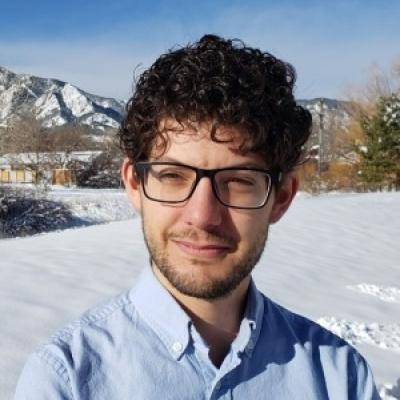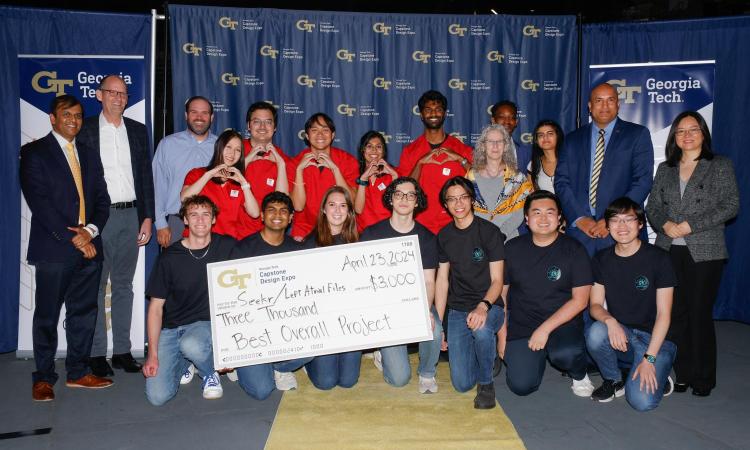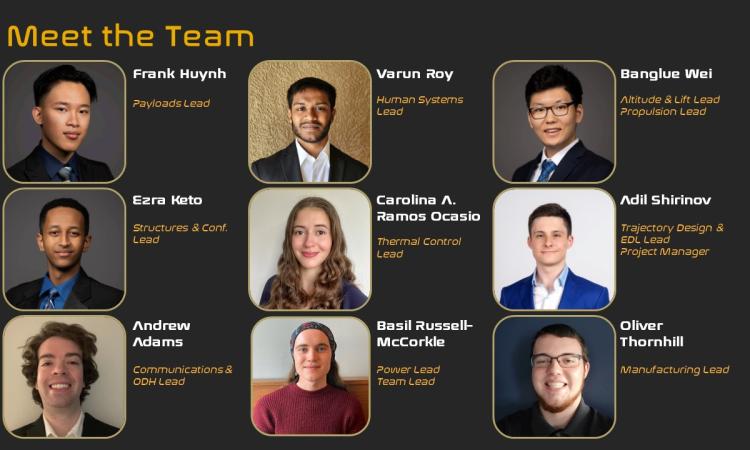Capstone gave 13 Aerospace Engineering teams a platform to showcase their dynamic projects
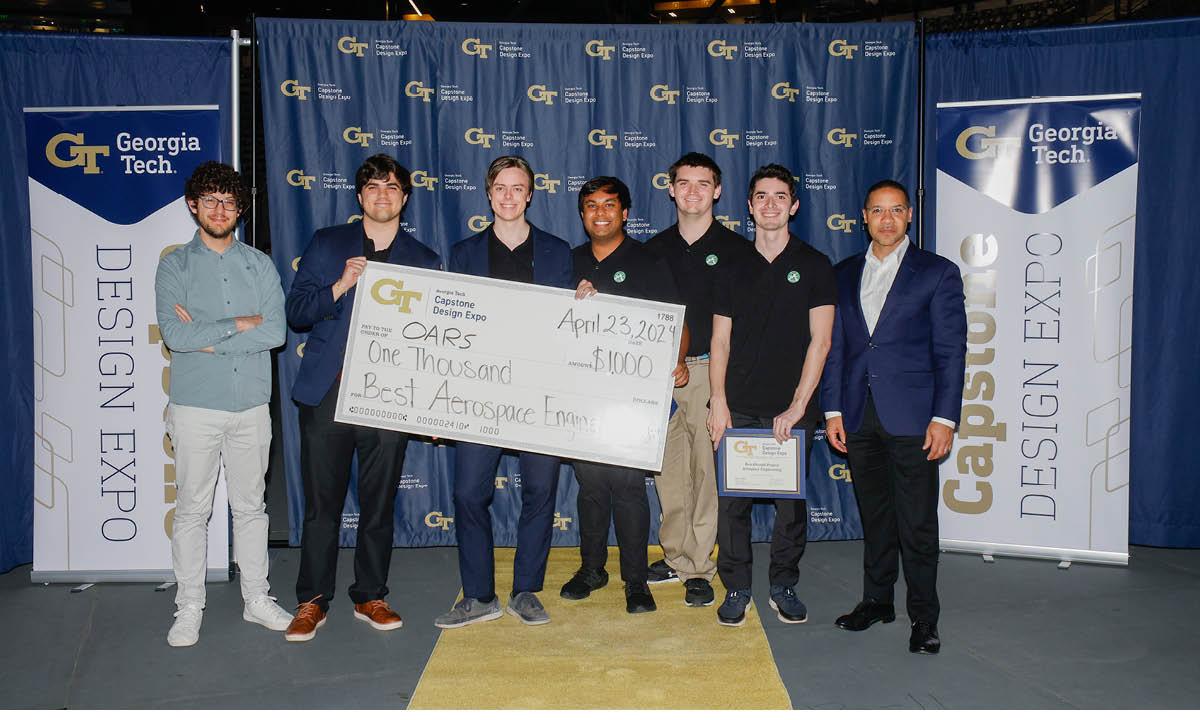
From left to right: Assistant Professor Alvaro Romero-Calvo, Oscar Haase, Samuel Stoknes, Vishal Rachapudi, Aiden Wilson, Elliot Kantor, and AE Chair Mitchell Walker.
Team Orbital Anomaly Recovery System (OARS), a five-person team sponsored by Intelsat, won the most outstanding aerospace engineering project at Georgia Tech’s Spring 2024 Capstone Design Expo. There were 204 teams across three colleges, from 12 schools presenting their projects before 200 judges in the McCamish Pavillion. OARS team members include Oscar Haase, Elliot Kantor, Vishal Rachapudi, Samuel Stoknes, and Aidan Wilson.
The AE School showcased 13 teams, each tasked with tackling a sophisticated aerospace engineering challenge. Undergraduate teams opted for either space exploration, vertical lift, or fixed-wing aerospace engineering courses to guide and drive their semester-long senior projects.
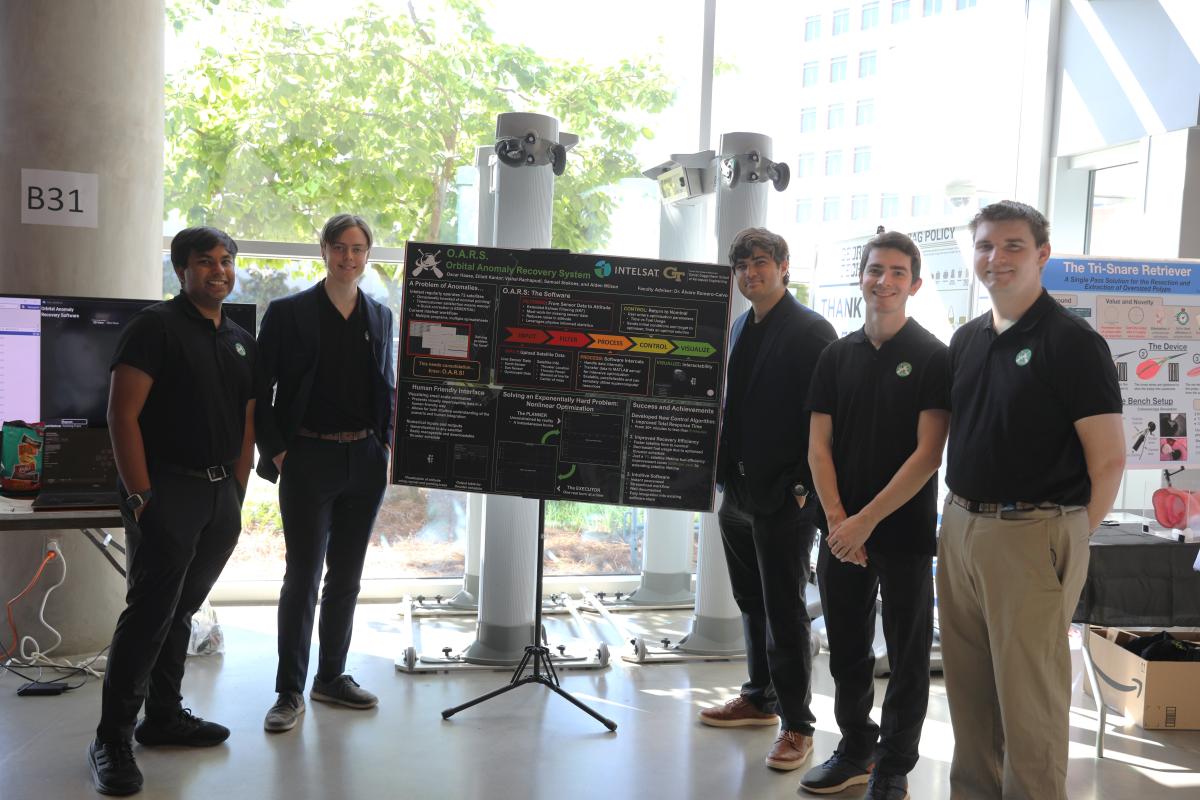
OARS Team from left to right: Vishal Rachapudi, Samuel Stoknes, Oscar Haase, Elliott Kantor and Aidan Wilson
"OARS' project leverages a good fundamental understanding of space systems engineering to solve a very practical industry problem. Their work has the potential of saving millions in operational costs to their sponsor, Intelsat, and paves the way for new collaborations between our school and industry partners. Working with them and Intelsat this semester has been a real pleasure," said
Assistant Professor Álvaro Romero-Calvo
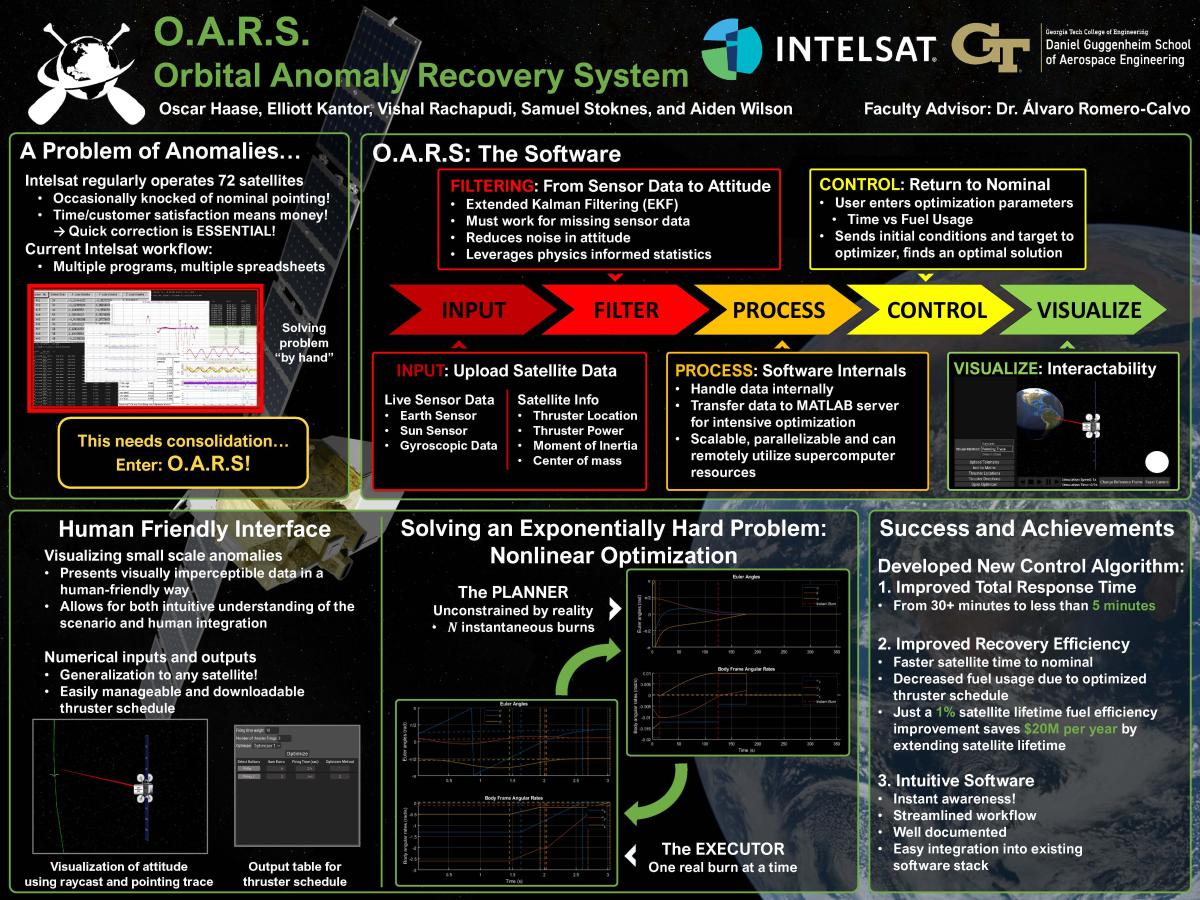
OARS 2024 Capstone Design Expo Poster
The team worked hard and they asked good, well-thought questions. It was a pleasure and refreshing to work with them.
Joe Chan, Flight Dynamics Director at IntelSat (team sponsor)
Intelsat created the OARS Team project. The company operates numerous geostationary satellites that stay above the same point over Earth and provide communications 24 hours a day. The OARS project focused on the issue of spinning satellites and created an algorithm to detect a spinning satellite and direct it back to the correct direction.
“Satellites may spin because of micrometeorites or even a misfired thruster. We created a simulation to provide a better workflow and a better tool for Intelesat to correct the satellite and have it point back towards Earth so that people can regain their internet access as quickly as possible,” Rachapudi said.
They used a game engine called Godot to create the visual simulation. For the math and controls, they used MATLAB on the back end.
“The simulation is for Intelsat to verify and test what the control algorithm suggests as the correct thruster firings to produce the optimal reset pattern,” Rachapudi explained. “It’s basically a tool to visualize it and see what's going on because before, Intelsat’s workflow had them just looking at graphs and telemetry data in an Excel spreadsheet. But we created a visual tool for them actually to see what's going on.”
The biggest challenge the team faced was understanding where the satellite was actually pointing while it was spinning because the sensor data only works when the satellite is pointing at Earth.
“Basically, the center is like a camera pointing at Earth, and there's a frame. If the Earth is out of that frame, then we have no idea where it's pointing, and we can’t see Earth. So, we had to figure out how to propagate that into the future and know where it would be pointing.”
The team also had to deal with the control algorithm. Actual vehicles don’t act perfectly, so when they apply a thruster, it doesn’t act instantaneously. So implementation had to account for physical lag and physical dynamic application of the thrust. They spent long hours working to perfect it. Rachapudi credits Stoknes with playing a big part in overcoming this challenge.
“What we did couldn’t have been done without the great people we had. The win is a testament to the team,” Rachapudi concluded.
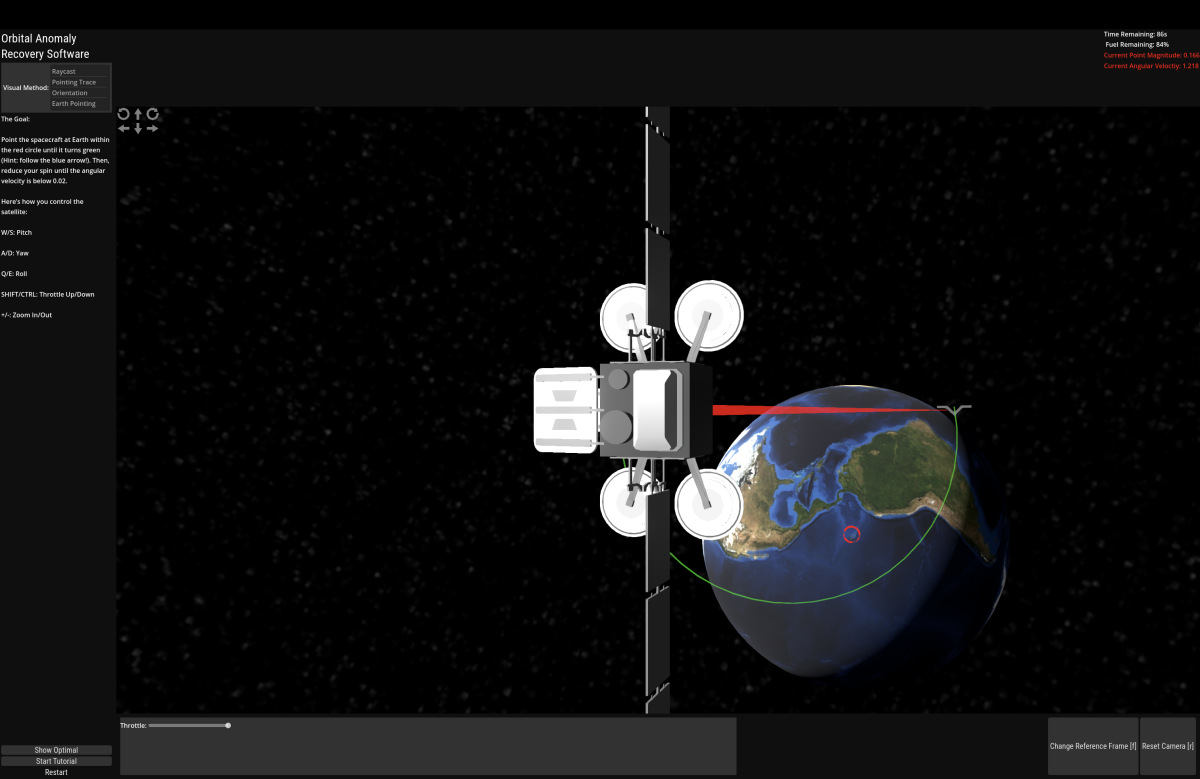
Orbital 2 with Earth
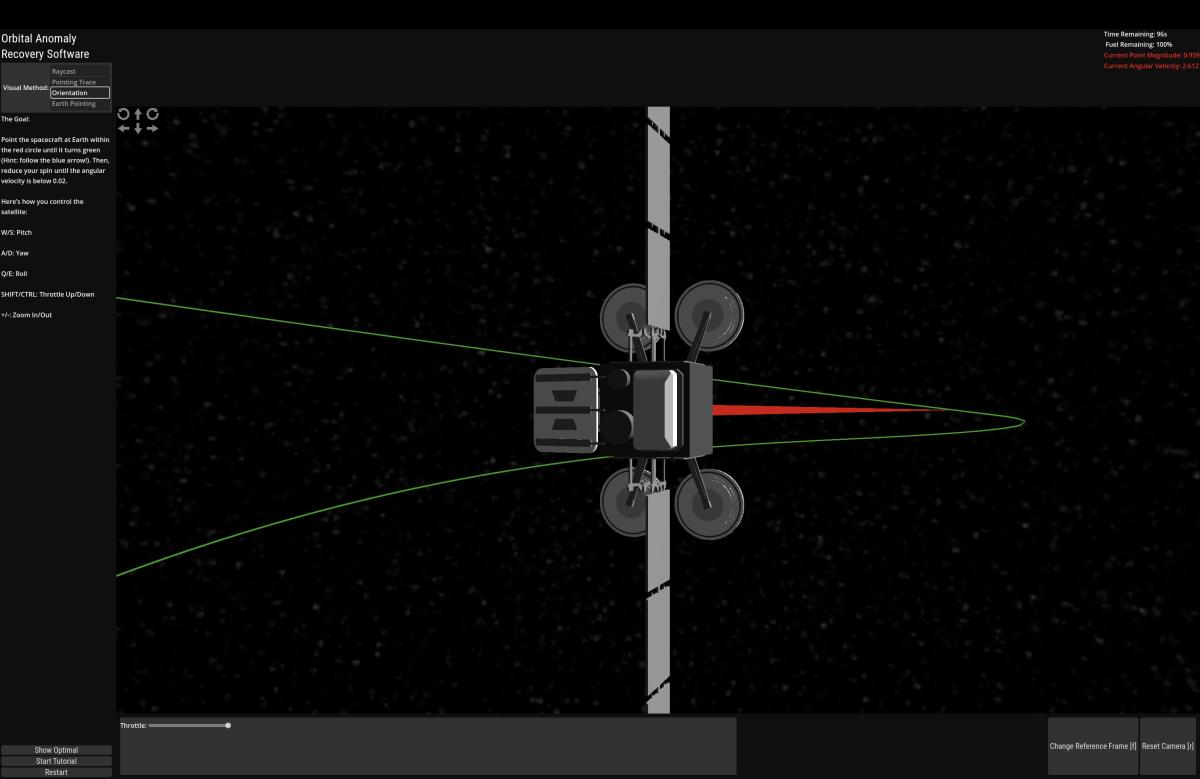
Orbital Anomaly Software
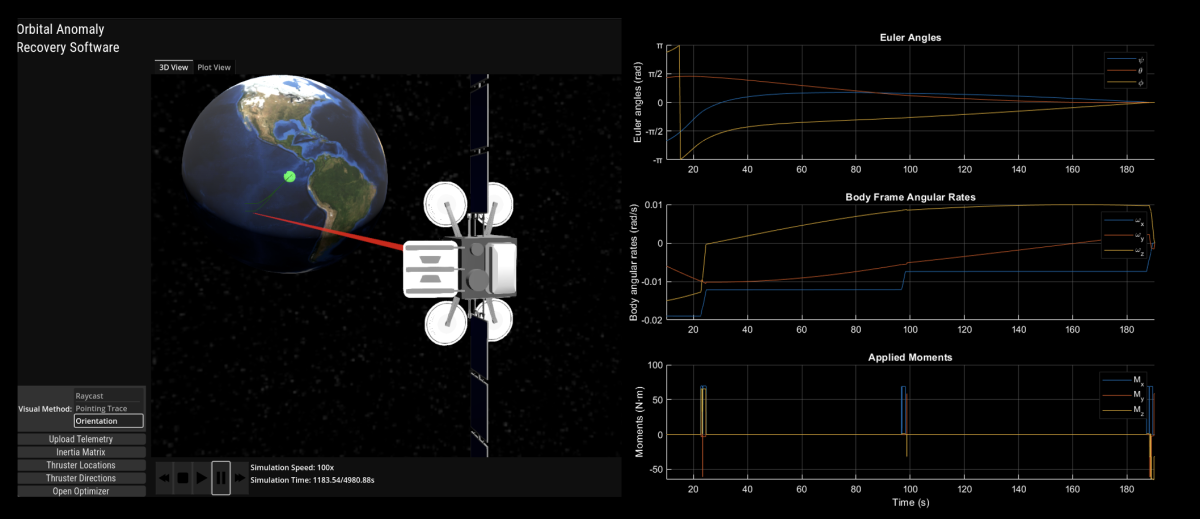
Angle Rates and Tables
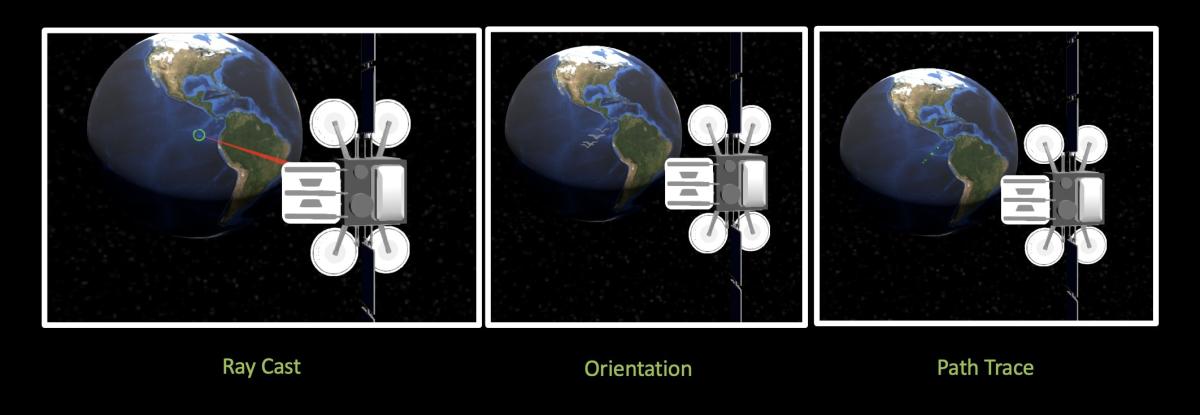
Ray cast orientation and path trace
Two teams tied for the best overall project, Interdisciplinary Team Seekr Assistive Airport Navigation and Biomedical Team Left Atrial Files. This is the second year in a row that two teams have taken the top spot. In a video, Atlanta Mayor and Georgia Tech Engineering graduate Andre Dickens congratulated the 2024 Capstone Expo participants.
Related Stories
Surgical Tool, Airport Navigation Aid Top Spring 2024 Capstone Expo
Projects that could help doctors save lives and restore independence for visually impaired travelers impress judges at semester-ending showcase.
AE Winning Capstone Team Will Unlock the Mysteries of Venus
Aerospace students showcase senior projects to explore, excavate, rescue, and investigate our world and beyond.
